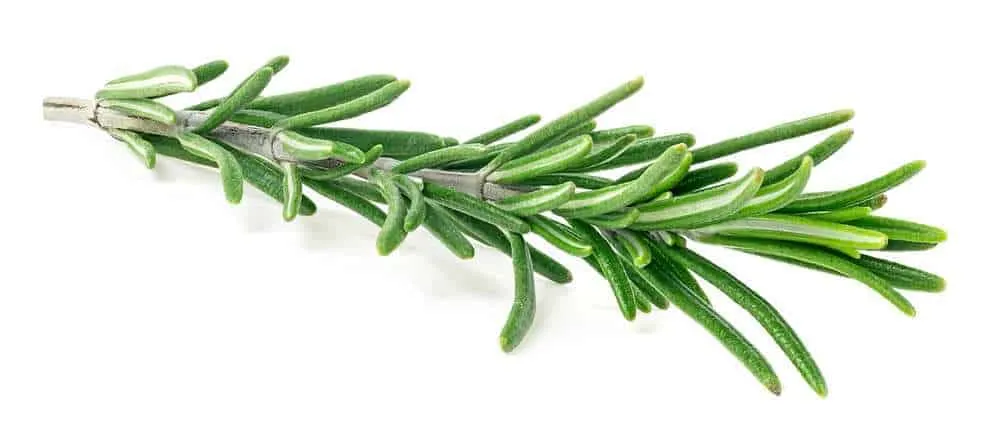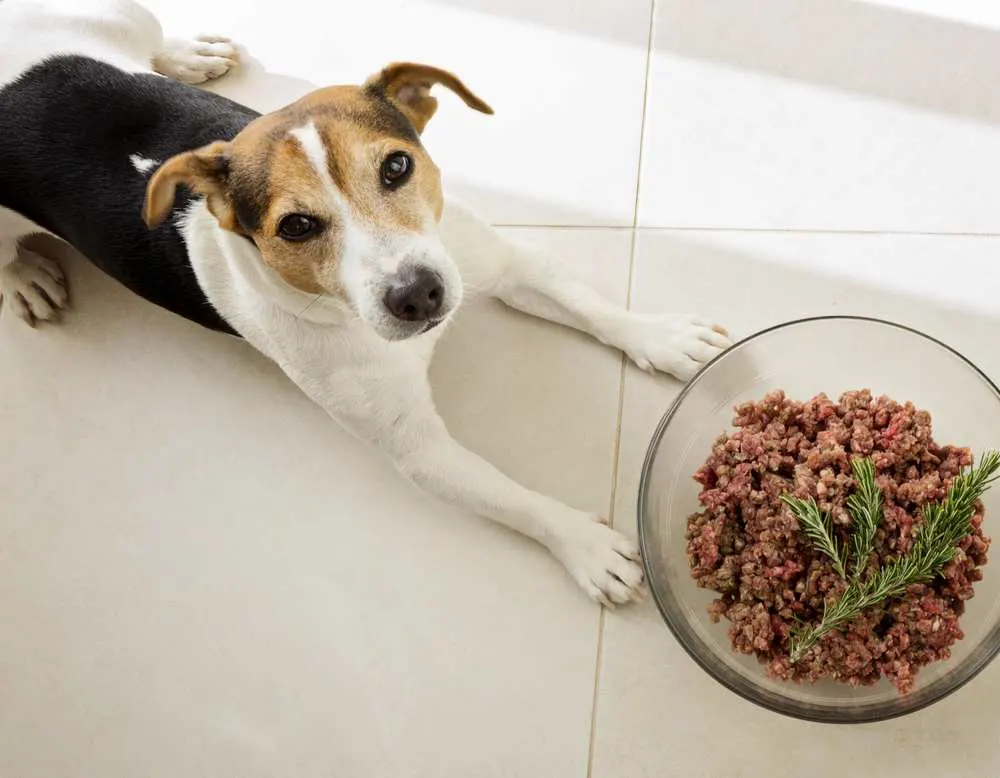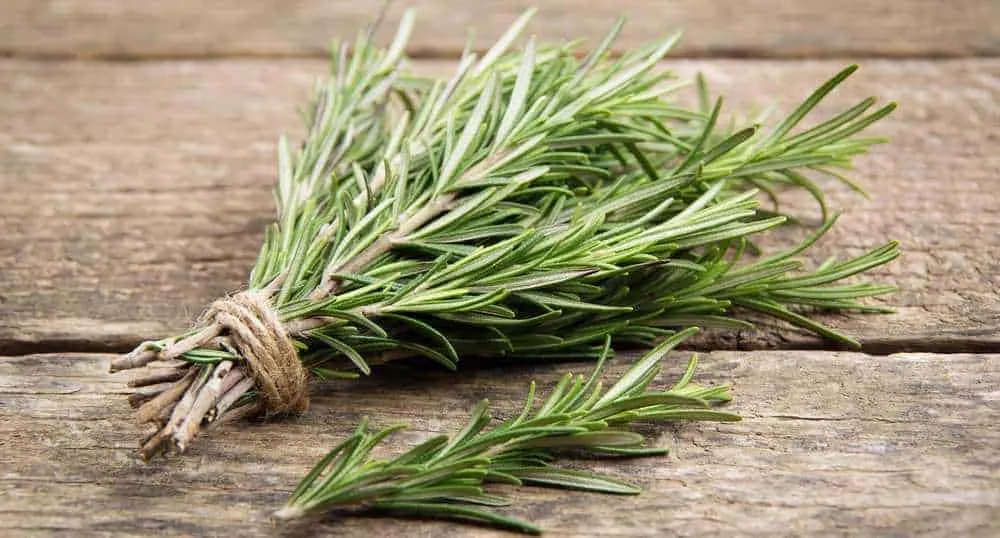Most dogs eat store-bought commercial food but should that always be the case? A dog’s diet is a lot more than a bowl full of kibble. It can be a bit tricky in the beginning to learn the entire do’s and don’ts, but it gets easier with time.
For example, big no-no ingredients are chocolate, grapes, garlic, onions, and so on. But how about herbs? Are they allowed in the dog’s diet? When I think about herbs, the two plants come to my mind first, and those are parsley and rosemary. So that makes me wonder can dogs eat rosemary. Is it safe for them to consume it? Will it make any significant difference in their diet?
Luckily for all of us, I just got the answer, so let’s begin.

What Is Rosemary?
Rosemary is an aromatic, evergreen, Mediterranean shrub from the mint family. This aromatic herb is widely used all over the world, not only for culinary purposes. In the past, it was mostly grown in the Mediterranean coastal region, but nowadays, you can grow it almost anywhere since it is very resistant.
In ancient medicine, rosemary was used for memory enhancement. In today’s culture, it is considered to be a symbol of loyalty and love. Rosemary has a strong flavor and odor, and some might not prefer it. Its stiff, leathery leaves look like needles, and they can have white, blue, pink, or purple flowers.
Rosemary is a great source of vitamins and minerals like calcium, iron, and vitamin B6. This fragrant herb offers many benefits, foremost antioxidant, and antimicrobial properties, so it is often added to commercial dog foods.
Also, it is known that rosemary promotes good heart health. So make sure next time you prepare meals for both you and your pup to sprinkle on some of this goodie and stay healthy and strong.

Can Dogs Eat Rosemary?
Yes. Dogs can eat rosemary in small amounts occasionally. You can use fresh or dried leaves and twigs. Just chop them into small pieces and add them to their food. If you can’t find fresh rosemary, you can use dried ones or a rosemary extract.
Rosemary extract is safe with no genotoxic risk since the concentration of the essential oil is low. Like I already said, rosemary extract can be found in commercial pet food since it prolongs shelf life. On the other hand, rosemary essential oil is listed among those not safe for dogs, just like oregano, thyme, garlic, tea tree, clove, juniper, and wintergreen.
It is proven that very high doses of rosemary essential oils have shown the potential for toxicity problems for both humans and pets. Rosemary essential oil is used topically on wounds and scratches cause it has antimicrobial properties, yet dogs may lick it after application, so be careful when using it, especially if your dog has a history of seizures.

Benefits Of Rosemary For Dogs
If you decide to include this herb into your dog’s diet, you can be sure it will be very beneficial for your fur baby. But like I always say, please consult your vet before making any significant change in your dog’s diet to make sure you do not do any harm.
After some thorough research, I found quite an impressive amount of health benefits that rosemary can provide, and here I will list only the important ones:
1. Antimicrobial
Rosemary is a great pathogen-fighter against the most common food bacteria, so it is no surprise that this herb is one of the most used ingredients in pet food. Rosemary is an excellent natural preservative that keeps the food from spoiling, but it will as well fight the bacteria and fungus in your pup’s body, maintaining him/her infection-free.
Because it has antimicrobial properties, rosemary is used in many antibacterial skin creams or eye rinse solutions. It will speed up the healing process of cuts and burns and fight urinary and gastrointestinal infections.
2. Antioxidant
Rosemary has antioxidant properties since it helps to neutralize free radicals that can damage cells in the body. The amount of free radicals is directly linked to several diseases, such as cardiovascular conditions and cancer.
3. Heart Health Promoter
Rosemary also has potent antispasmodic effects, so it can prevent spasms that occur on smooth muscles like the heart is. Rosemary will help control certain cardiac arrhythmia cases, and it will strengthen the heart in general. A strong heart is especially useful for dogs recovering from traumatic events.
4. Digestion Supporter
Rosemary is good for preventing gastrointestinal issues like gasses and indigestion. As I previously mentioned, it has antimicrobial properties to help fight and calm down gastrointestinal infections.
5. Coat Quality Promoter And Bug Repellant
Since it is very fragrant and aromatic, rosemary is a powerful repellent for fleas, ticks, and mosquitos. The best way to fight fleas is to use rosemary in its natural form, or if you can’t find it, you can use extract and essential oil for making powders, rinses, sprays, and shampoos. The rosemary repellent will fight off fleas and prevent health issues that are associated with flea infestation.
Remember, you must remove as many fleas as you can from your pup and its bedding, and after that, you can start using rosemary repellent.
Rosemary Wash
To make this wash, boil 2 pints of water, add 2 cups of fresh rosemary leaves. Let it cook for 30 minutes. Then, let the mixture cool down completely and remove the leaves. You should put the water in a bottle and keep it in the fridge.
Use this wash after every bath you give to your dog. Rinse the shampoo thoroughly and then pour the cool rosemary water over the dog where fleas tend to congregate. Never rinse the rosemary water. Just let the dog dry naturally.
Rosemary Flea Powder
Combine equal parts of rosemary, rue, wormwood, fennel, and peppermint to make the most effective flea powder. Grind the herbs together until they become a fine powder. Apply the powder to your dog’s coat just like you would apply the commercial flea powder, and that’s all.
Rosemary Essential Oil
Undiluted rosemary oil can be irritating to the skin, and there is a potential threat of ingestion, which can cause digestive issues. Therefore, do not apply the oil directly to the skin. Rather, apply a few drops to your dog’s collar or bedding to fight off the fleas.
Also, rosemary is good for skin and coat since it has great conditioning properties. If your pupper suffers from skin irritations and infections, rosemary baths will help smooth them out. Add rosemary to your dog’s regular bath and keep the skin healthy and the coat thick and glossy.

How To Give Your Dog Rosemary?
Well, adding a little bit of this herb as a seasoning to the rice and meat you will serve to your pupper is a good way to start. You can also add a small amount of the chopped herb in their kibble; this will also enhance the taste and spice the kibble’s old bland taste.
Never use undiluted rosemary oil internally or externally. Never add rosemary oil directly to your dog’s water! If you want to infuse the water, use fresh rosemary leaves or make him a rosemary tea but make sure you adjust the dosage according to your pup’s weight.
It is recommended to use 1/8 teaspoon of tincture as a starting dose per 20 pounds of your dog’s weight. You can give them this amount up to three times per day.
Keep in mind that dogs may experience an allergic reaction to rosemary if used in larger amounts. If rosemary is new in your dog’s diet and you notice any side effects such as vomiting, consult your veterinarian.
Let me remind you that rosemary is a big no-no for dogs that have seizures, and for pregnant dogs, I explained all the possible complications when I wrote about can dogs eat catnip.

Bottom Line
Rosemary is an herb that is always a hot topic in the pet industry since some dogs did experience allergic reactions. But let’s not make a big deal out of it since every pup is different.
Also, many commercial foods for dogs already contain rosemary extract, so make sure you read the label before adding fresh rosemary into their food and avoid any further complications.
Anyhow do not rush in making any significant change in your pet’s diet before seeking expert advice from your veterinarian. Not everything that is completely natural is safe for dogs!
Learn More: What Can Dogs Eat? A Comprehensive List Of Dog-safe Foods


